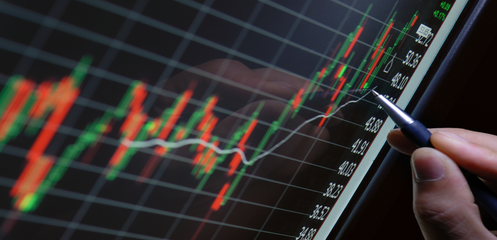Mastering Emotional Control in Forex Trading
Emotions are an inevitable part of forex trading, often influencing decisions in ways traders may not even realize. Whether it’s greed, fear, frustration, revenge, or euphoria, every trader experiences emotions at some point. The key is not to eliminate emotions but to manage them effectively so they don’t interfere with your trading performance. In this guide, we’ll explore the most common emotional pitfalls in forex trading and practical strategies to control them.

Why Emotions Can Be Dangerous in Trading
Have you ever found yourself staring at the charts for hours, obsessing over every market movement? Many traders place stop-loss and take-profit orders to avoid emotional interference, yet they still feel the urge to check the charts constantly. This behavior can be dangerous.
📌 What Happens When You Let Emotions Take Over?
✔️ You second-guess your strategy.
✔️ You might exit trades too early out of fear.
✔️ You could increase risk in an attempt to recover losses.
✔️ You become emotionally attached to trades, leading to poor decisions.
If emotions dictate your trading decisions, your capital is at risk. Let’s explore how to stay disciplined and in control.
Practical Steps to Control Emotions in Forex Trading
1. Trade on Higher Timeframes
One of the simplest ways to reduce emotional stress is to avoid lower timeframes like the 1-minute or 5-minute charts. These short intervals create high volatility, leading to panic-driven decisions. Instead, try trading on higher timeframes (e.g., H1, H4, Daily).
✔️ Higher timeframes provide stronger signals.
✔️ You have more time to analyze the market.
✔️ Less frequent trades reduce emotional stress.
2. Apply Strict Money Management
Risking too much on a single trade can lead to anxiety and irrational decisions. To keep your emotions in check:
✔️ Never risk more than 1-2% of your capital per trade.
✔️ Use stop-loss orders to protect against major losses.
✔️ Trade with money you can afford to lose.
When your risk is small, losing a trade won’t impact you emotionally as much, allowing you to stick to your strategy.
3. Avoid Overtrading
Many traders set daily profit targets, believing it helps reduce emotional stress. However, this can lead to forced trades when the market conditions aren’t right.
Instead of aiming for a specific number of pips per day, focus on:
✔️ Trading only when high-quality setups appear.
✔️ Following your strategy without feeling pressured.
✔️ Being patient and waiting for the right opportunity.
4. Step Away from the Charts
Constantly watching your trade won’t change the outcome—but it will increase emotional pressure. Once you’ve placed your stop-loss and take-profit orders, step away from the screen and let the trade play out.
✔️ Take breaks to clear your mind.
✔️ Engage in other activities to avoid obsessing over trades.
✔️ Trust your trading plan instead of micromanaging.
5. Accept That Losses Are Part of Trading
No trader wins 100% of the time. Losses are inevitable, and the sooner you accept them, the easier it is to stay emotionally detached from trades.
✔️ Instead of focusing on individual trades, evaluate your long-term performance.
✔️ Keep a trading journal to analyze your emotional reactions and improve over time.
✔️ Learn from your mistakes rather than letting losses frustrate you.
6. Develop a Trading Routine
A structured trading routine can help you stay disciplined and emotionally stable. Your routine should include:
✔️ Pre-trading analysis (checking market trends, news, and indicators).
✔️ Strict adherence to your strategy (entering trades based on clear signals).
✔️ Post-trading review (analyzing trades, identifying mistakes, and improving).
By following a routine, you reduce emotional impulses and trade with confidence and consistency.
Final Thoughts: Stay Focused and Disciplined
Controlling emotions in forex trading takes time and practice, but it’s essential for long-term success. Remember:
✔️ Trade on higher timeframes for better decision-making.
✔️ Follow strict risk management rules to avoid emotional trading.
✔️ Avoid overtrading and focus on quality trades.
✔️ Step away from the charts once a trade is placed.
✔️ Accept losses as part of the game and learn from them.
✔️ Stick to a structured trading routine to maintain discipline.
The more you work on controlling your emotions, the better trader you’ll become. Stay patient, stay disciplined, and success will follow!
